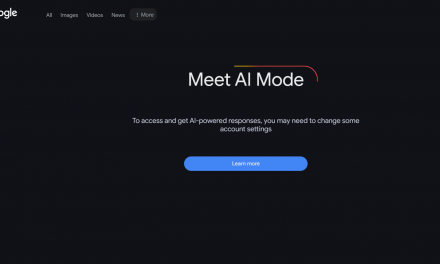AI-Powered Chatbots Redefine Client Engagement in Wealth Management
In the ever-evolving landscape of wealth management, Morgan Stanley is poised to usher in a groundbreaking transformation. The banking giant is set to introduce a generative artificial intelligence chatbot, crafted in collaboration with OpenAI, to augment the services offered by its financial advisers. A significant departure from traditional client interactions, this AI-driven initiative promises a streamlined, efficient, and potentially revolutionary approach to client engagement.
Chatbots Revolutionizing Client Conversations
After extensive trials involving 1,000 financial advisers, Morgan Stanley is gearing up to unveil this innovative chatbot. Developed in conjunction with OpenAI, the virtual assistant aims to simplify various aspects of client-adviser interactions. One of its core functions is to empower bankers by swiftly retrieving research materials or required forms, eliminating the laborious task of navigating through vast document repositories.
However, the potential of this AI chatbot extends beyond mere document retrieval. Morgan Stanley envisions a future where this virtual assistant, with client consent, can generate meeting summaries, draft follow-up emails outlining next steps, update the bank’s sales database, schedule follow-up appointments, and provide insights on complex financial matters like tax strategies, retirement planning, and inheritance management. While specific details of these capabilities remain undisclosed, it’s evident that this venture into AI is poised to revolutionize wealth management.
AI’s Impact: Comparable to the Internet Revolution
Sal Cucchiara, Chief Information Officer of Wealth and Investment Management at Morgan Stanley, believes that the impact of AI could be “very significant,” drawing parallels to the transformative effect of the internet. This forward-looking approach positions Morgan Stanley at the forefront of AI adoption in the financial sector.
Cucchiara’s journey to partner with OpenAI began in 2022, when he recognized the exceptional potential of their ChatGPT technology. His collaboration with OpenAI ultimately led to a deal in the summer of 2022, granting Morgan Stanley preferred access to AI product development for wealth management. The partnership solidified during a celebratory dinner hosted by Andy Saperstein, Morgan Stanley’s co-president and head of wealth management, who aspires to become the bank’s next CEO.
While this AI-powered chatbot promises to enhance financial advisers’ capabilities, the core of investment advice and client relationships will continue to be the domain of humans. The technology is viewed as a valuable tool by Morgan Stanley’s employees, with no imminent fears of replacement by bots.
A Bold Step in the Wealth Race
Morgan Stanley’s AI initiative forms a pivotal part of its broader wealth management strategy. In the second quarter, the bank’s wealth division achieved record net revenue growth of 16%, with an influx of $90 billion in new client assets. CEO James Gorman’s ambitious goal of reaching $10 trillion in assets under management drives this strategic push into AI-driven innovation.
Morgan Stanley’s endeavor is not solitary in the financial industry. Other major players like JPMorgan Chase and Bank of America are also diving into AI adoption. These Wall Street titans are exploring the possibilities offered by generative AI capable of creating text, images, and other data, pushing the boundaries of client engagement and operational efficiency.
As AI continues its ascent, even beyond banking, Moody’s Analytics collaborates with OpenAI and Microsoft to develop a research assistant for clients. This innovative momentum extends beyond banking giants, with asset managers, traders, and insurers also embracing AI. Michael Abbott, Global Banking Lead at consulting firm Accenture, emphasizes that the largest banks lead the charge, with AI-driven customer services becoming increasingly prevalent.
In the ever-evolving financial landscape, Morgan Stanley’s bold foray into AI heralds a new era in wealth management, one where technology empowers advisers and revolutionizes client engagement while preserving the essential human touch in financial decision-making.





